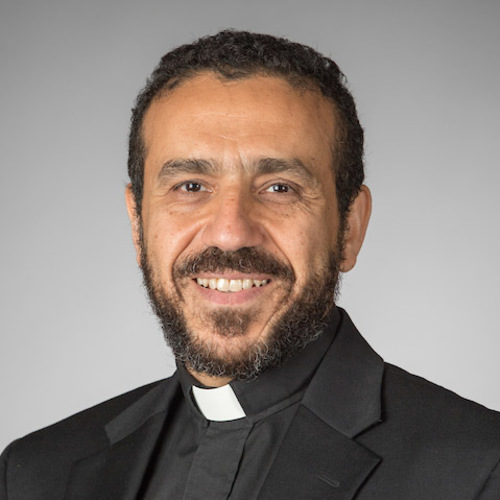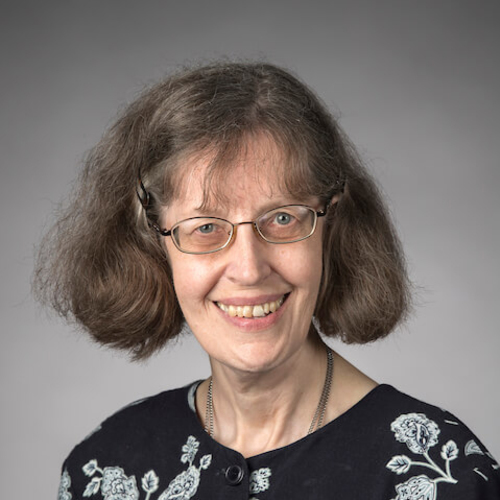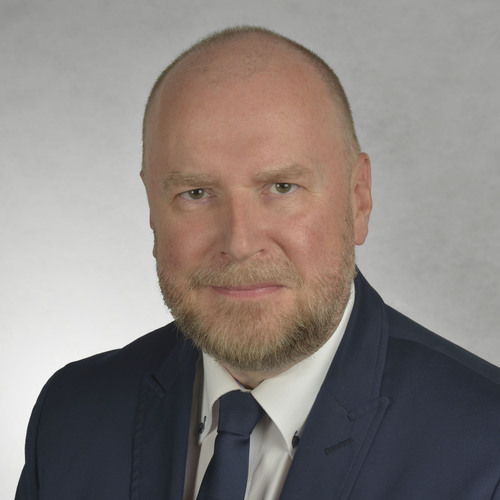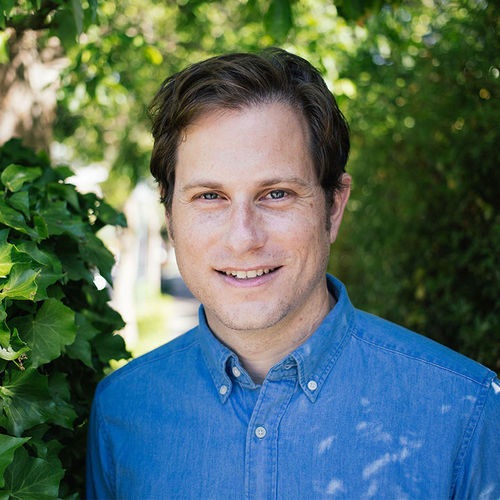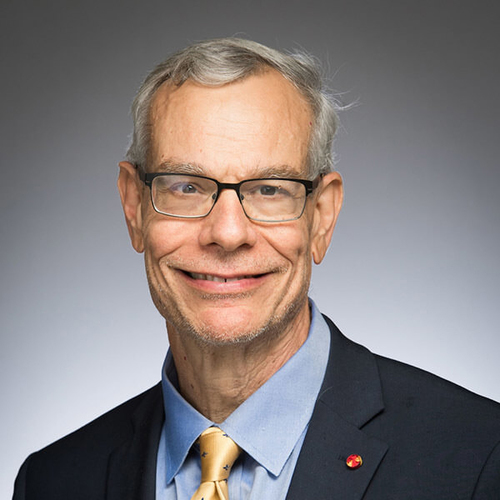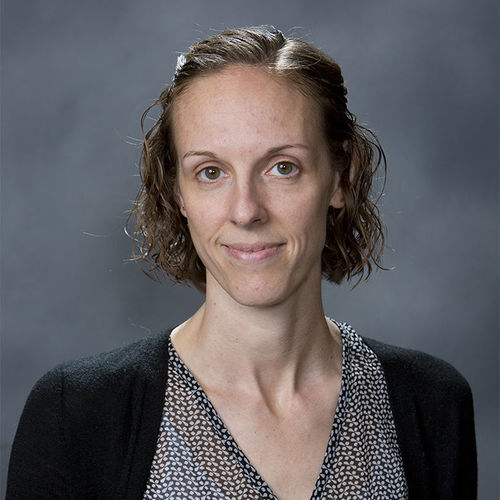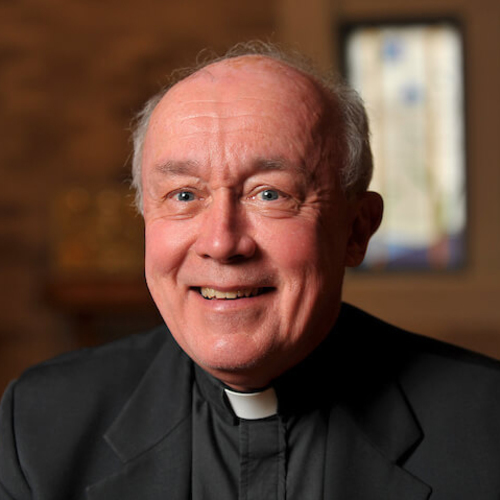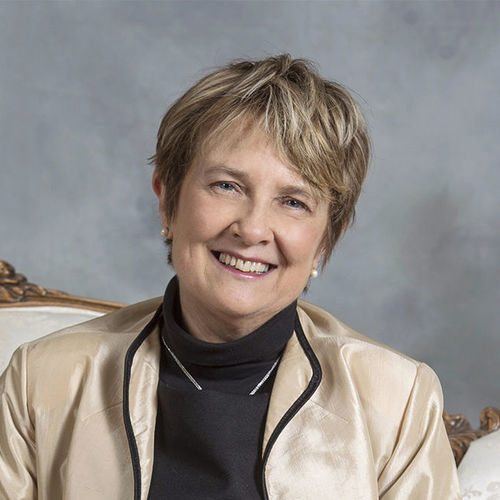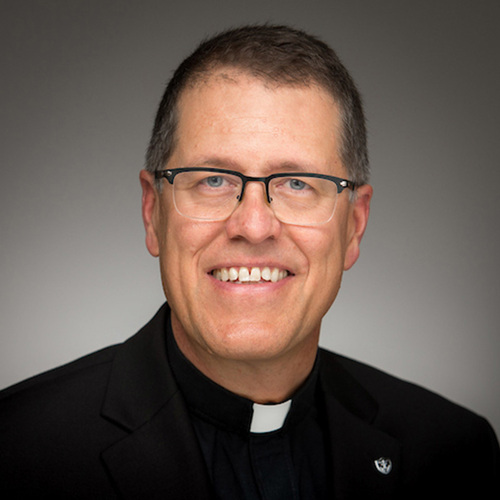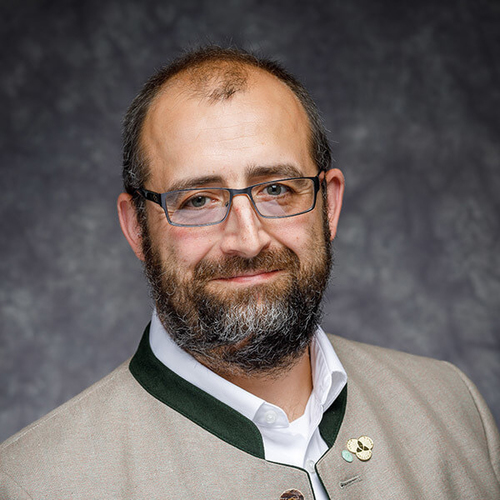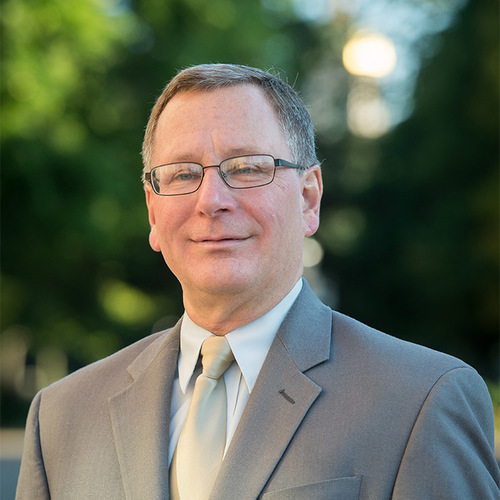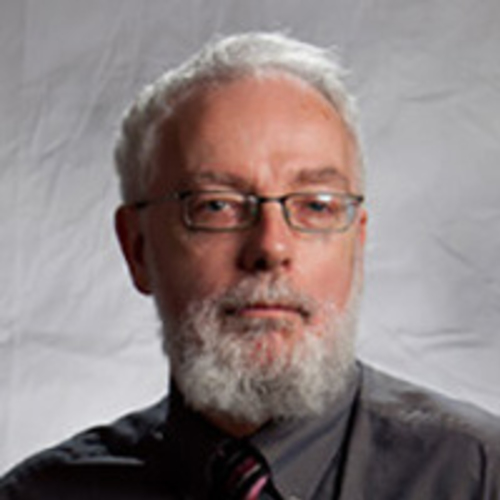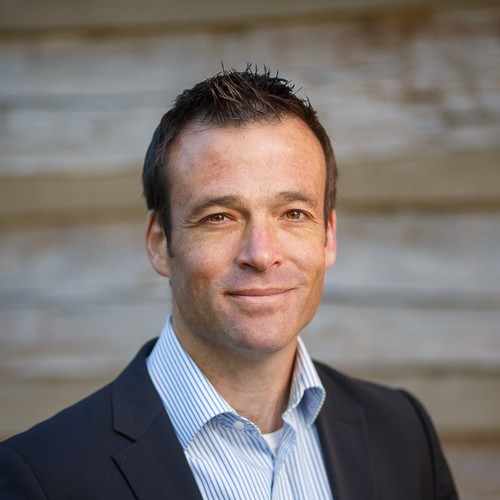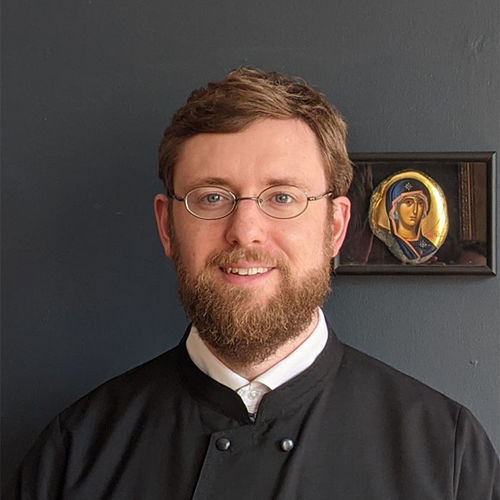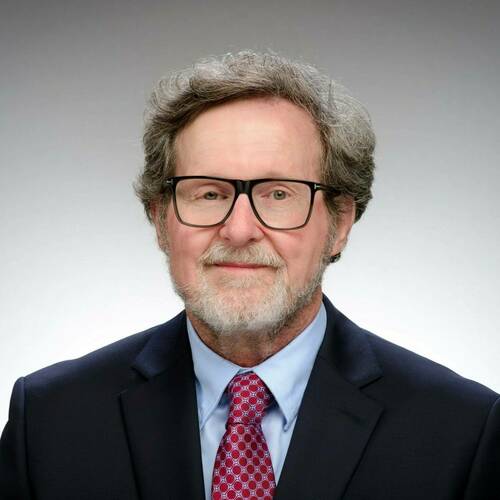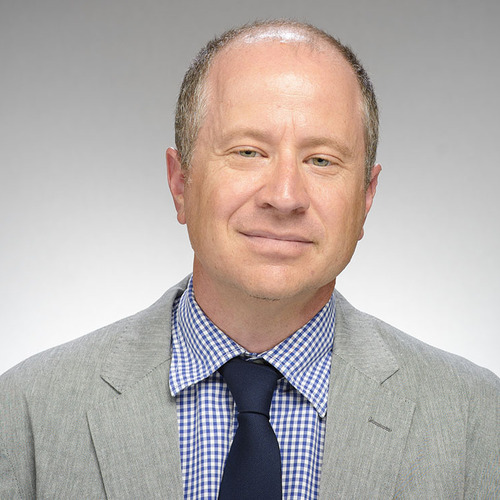History of Christianity
The Department of Theology provides a congenial setting for the study of the history of Christianity in all its rich complexity. Reflecting the diversity of methods and interests of the faculty, a sampling of doctoral seminars from recent years would include:
- the medieval Jewish-Christian encounter
- religious pilgrimage
- asceticism
- theologies of Aquinas, Augustine, Luther, and Origen, among others
Special strengths of the program in the history of Christianity include the interpretation of scripture prior to the modern period, spirituality, and doctrine and theological method from the early period through the Reformation.
“I tend to gravitate towards doctrines that seem inexplicable, and I try to understand what motivated the early Christians to formulate these doctrines in just these ways."
— Khaled Anatolios, John A. O'Brien Professor of Theology
Students who major in the history of Christianity normally concentrate in their course work and candidacy examinations on two of the following periods of Christian history, in any combination: early, medieval, Reformation & modern. In the first two years of residence, the student takes courses in the major, evenly divided between the two periods.
While the majority of these courses are taken with the faculty in the Department of Theology, students are encouraged to take appropriate courses offered by historians of Christianity affiliated with other departments in the University. Students are also required to take some courses outside their field.
Admission to the history of Christianity program has in recent years been increasingly competitive. Entering students should already have made significant progress in the study of languages needed for serious historical research; introductory language work while in residence will be in addition to the normal course load.
Library holdings are especially strong in the early and medieval periods. Most of the reference and research tools crucial for the investigation of early and medieval Christianity are housed in the Medieval Institute, located on the seventh floor of the Hesburgh Library.
Faculty
-

Khaled Anatolios
Department Chair
John A. O'Brien Professor of TheologyHistory of Christianity, Christianity and Judaism in Antiquity |Early Christian Doctrine, Theological Method, and Biblical Exegesis |Khaled Anatolios is interested in all aspects of the theology of the early Church, with special emphases on the Trinitarian, Christological, and soteriological doctrines of the Greek fathers and Augustine; early Christian biblical exegesis; and the development of theological methodology in Patristic and medieval theology. He has published on a variety of early Christian theologians including Irenaeus, Origen, Athanasius, Augustine, and Gregory of Nyssa. A particular focus of his work is the engagement between early Christian theological reflection and contemporary theological concerns.
-

Ann W. Astell
Professor
History of Christianity | Hagiography as Biblical Commentary; the Song of Songs and the Liturgy | Ann W. Astell is Professor of Theology at the University of Notre Dame. She is the author of six books, most recently Eating Beauty: The Eucharist and the Spiritual Arts of the Middle Ages (2006), and is now completing a monograph on hagiography and the Bible. She has been the recipient of an N.E.H. fellowship and a John Simon Guggenheim Memorial Fellowship. She has edited eight collections of essays, most recently Saving Fear in Christian Spirituality (2020). Past President of the Society for the Study of Christian Spirituality and also of the Colloquium on Violence and Religion, she has published recently in Cistercian Studies Quarterly, Spiritus, Theological Studies, Marian Studies, and Religion and Literature.
-

Yury P. Avvakumov
Associate Professor
History of Christianity |Papacy and Eastern Churches; scholastic theology; Latin and Byzantine ecclesiology and sacramental theology; Russian and Ukrainian religious thought of the 19th and 20th century. | Avvakumov is a historian of Christianity who specializes in the Later Medieval and Early Modern periods, with a focus on scholasticism, ecclesiology, and relations between the papacy and Byzantium, and in Russian and Ukrainian religious history and thought of the 19th and 20th centuries. He is also broadly engaged with the history, ecclesiology, and liturgy of Byzantine-rite Christianity in communion with Rome (“Uniate”, or “Greco-Catholic” Christianity) from its medieval beginnings to the present day. His special research interest is the fateful history of Catholic and Orthodox Christians under Soviet totalitarianism and their role in contemporary post-communist societies. Avvakumov obtained doctorates in Orthodox theology in St. Petersburg, Russia, and in Catholic theology in Munich, Germany. Prior to coming to Notre Dame in 2010, he held academic positions in Germany, Ukraine, and Russia, including at the Ukrainian Catholic University in Lemberg where he served as Dean of Humanities and as the founding chair of the Department of Classical, Byzantine, and Medieval Studies in 2006-2009. Courses he teaches include “Latin West and Byzantine East 1054-1596: Clash and Communion”; “Popes, Patriarchs, and Councils: Medieval Church and Ecclesiology”; “Introduction to Scholastic Theology”; “Theology of the Byzantine Liturgy”; “Russian Religious Thought”; “Eastern Churches: History and Theology”. A trained singer, he also teaches a college seminar “Heaven and Hell: Musical Theater” based on operas and oratorios by Bach, Lully, Meyerbeer, Wagner, and Mussorgsky.
-

Jeremy Phillip Brown
Assistant Professor
History of Christianity |Medieval Judaism, Iberian Kabbalah, Jewish-Christian Polemic |Jeremy Phillip Brown is Assistant Professor of Theology specializing in medieval Judaism. He completed his BA in Religion at Reed College, and earned his doctorate in Hebrew and Judaic Studies at New York University. Brown has taught at the University of San Francisco, and served as Simon and Ethel Flegg Postdoctoral Fellow in Jewish Studies at McGill University in Montreal. Research interests include the Zohar, the penitential discourses of Kabbalah and Jewish pietism, Jewish-Christian polemic in medieval Iberia, and the dissemination of Kabbalah in Latin America.
-

John C. Cavadini
Professor
History of Christianity, Christianity and Judaism in Antiquity | He teaches, studies, and publishes in the area of patristic theology and in its early medieval reception. | John C. Cavadini is a Professor of Theology at the University of Notre Dame, having served as Chair from 1997-2010. Since 2000 he has served as the Director of the McGrath Institute for Church Life at Notre Dame. He received a B.A. in 1975 from Wesleyan University; an M.A. in 1979 from Marquette University; M.A., 1981, M.Phil., 1983 and his Ph.D. in 1988 from Yale University. A member of the Notre Dame faculty since 1990, Cavadini teaches, studies and publishes in patristic and early medieval theology, the theology of Augustine, and the history of biblical and patristic exegesis. He has served a five-year term on the International Theological Commission (appointed by Pope Benedict XVI) and in 2018 received the Monika K. Hellwig Award from the Association of Catholic Colleges and Universities for Outstanding Contributions to Catholic Intellectual Life. As Director of the McGrath Institute for Church Life, he inaugurated the Echo program in catechetical leadership, the Notre Dame Vision program for high school students and is responsible for the continued growth and outreach of the McGrath Institute, which partners with Catholic dioceses, parishes and schools to address pastoral challenges with theological depth and rigor.
-

Catherine Cavadini
Director of Master of Arts
Associate Teaching ProfessorHistory of Christianity |The history of biblical interpretation, especially medieval interpretation of the Song of Songs. |Katie teaches courses within the undergraduate and MA curriculum as well as directing the MA Program.
-

Brian Daley, SJ
Catherine F. Huisking Professor of Theology, Emeritus
History of Christianity, Christianity and Judaism in Antiquity | Patristic Christology, Eschatology, Theology of Mary, Ecumenical Theology | Born in Orange, NJ, in 1940, Fr. Daley did his undergraduate work at Fordham University and a subsequent M.A, (classics and philosophy) at Oxford as a Rhodes Scholar. He then entered the Society of Jesus, taught for a year at Fordham, and studied theology for ordination in Frankfurt, Germany. He returned to Oxford in 1972 for doctoral studies, focused on the Patristic Christological tradition, and completed a critical edition of the works of the sixth-century theologian Leontius of Byzantium in 1978. He then was a faculty member of the Weston Jesuit School of Theology, in Cambridge, MA, until 1996, when he moved to Notre Dame's Department of Theology as the Catherine Huisking Professor. He considers himself a historical theologian, studying the thought and practices of the first seven or eight centuries of Christianity as expressions of the developing common faith of the Church, especially as it is focused on our understanding of the person of Christ, the Trinity, and the hope for eternal life. His most recent book is: God Visible: Patristic Christology Reconsidered (Oxford University Press, 2018).
-

Margot Fassler
Keough-Hesburgh Professor of Music History and Liturgy, Emeritus
Liturgical Studies, History of Christianity | Theology, Liturgy, and the Arts; Congregational Studies; Sacred Music |Margot Fassler, Keough-Hesburgh Professor of Music History and Liturgy, University of Notre Dame, is Director of the Program in Sacred Music and Tangeman Professor of Music History, Emerita, Yale University. Recent books include Music in the Medieval West and its accompanying Anthology (New York, 2014); (with Jeffery Hamburger, Eva Schlotheuber, and Susan Marti) Life and Latin Learning at Paradies bei Soest, 1300-1425: Inscription and Illumination in the Choir Books of a North German Dominican Convent, 2 vols. (Munster, 2016), and Medieval Cantors and Their Craft (ed. with Katie Bugyis and AB Kraebel) York Medieval Press, 2017. Fassler is a member of the North American Academy of Liturgy, a former President of the Medieval Academy of America, a fellow of the American Academy of Arts and Sciences, and an Honorary Member of the American Musicological Society. Her digital work includes documentary studies of contemporary congregations. Her book: Cosmos, Liturgy and the Arts in the Twelfth Century: Hildegard’s Illuminated Scivias is forthcoming with the University of Pennsylvania Press. A digital model of creation and cosmos based on the illuminations of Scivias (with Christian Jara) will appear in 2021. These works have been supported by grants from the Luce Foundation, the Guggenheim Foundation, and the ACLS. In 2019-20, Fassler was a fellow at the Radcliffe Institute, Harvard University.
-

Paul Kollman, CSC
Associate Professor
World Religions and World Church, History of Christianity |I am currently preparing a manuscript on the Catholic missionary evangelization of eastern Africa. |Paul Kollman, CSC, is associate professor of theology and has been on the faculty at Notre Dame in the Department of Theology since 2001. Before that he taught at the Queen of Apostles Philosophy Seminary in Jinja, Uganda, and Catholic Theological Union in Chicago. Since being at Notre Dame he has also taught at Tangaza College, Nairobi, Kenya. His scholarship focuses on African Christianity, mission history, and world Christianity, and he has taught and carried out research in Africa and in archives around the world. Kollman earned his PhD from the University of Chicago Divinity School (2001), and a BA and MDiv from Notre Dame (1984, 1990). He is the author of The Evangelization of Slaves and Catholic Origins in Eastern Africa, co-author of Understanding World Christianity: Eastern Africa, and numerous other publications in professional journals. He has served as executive director of Notre Dame’s Center for Social Concerns, as president of the American Society of Missiology, and is currently president of the International Association of Mission Studies. Kollman is also a fellow of the Kellogg, Kroc, and Nanovic Institutes at Notre Dame. A native of Cincinnati, Ohio, Kollman currently lives in O’Neill Hall at Notre Dame.
-

Ulrich L. Lehner
William K. Warren Professor
History of Christianity |History of Christianity after 1500, Global Catholic Studies, Early Modern History, Gender and Race in the History of Catholicism, 19th and 20th c. European History and Culture |Ulrich L. Lehner specializes in religious history and theology of the Early Modern period and the Enlightenment. Among his publications are over ten authored books and more than fifteen edited volumes, including The Oxford Handbook of Early Modern Theology, 1600-1800 (Oxford UP: 2016), Women, Enlightenment, and Catholicism: A Transnational Biographical History (Routledge: 2018), and most recently Innovation in Early Modern Catholicism (Routledge: 2021). He was selected as a Member and Herodotus Fellow in the School of Historical Studies at the Princeton Institute for Advanced Study, a fellow at the Institute for Comparative History of Religious Orders at the University of Eichstätt, Distinguished Fellow at the NDIAS (twice), fellow of the Earhart foundation (twice), and fellow of the Humboldt and Friedrich von Siemens Foundation. In 2014 he was inducted into the European Academy for Sciences and Arts, in 2018 into the Accademia Ambrosiana, and in 2022 into the Academia Europea.
-

Timothy Matovina
Professor
History of Christianity | Latino/a theologies and Latino/a Catholicism | Timothy Matovina works in the area of Faith and Culture, with specialization in U.S. Catholic and U.S. Latino theology and religion. Professor Matovina has authored over 150 essays and reviews in scholarly and opinion journals. He has also written or edited 20 books, most recently Latino Catholicism: Transformation in America’s Largest Church, which won five book awards, including selection as a CHOICE “Outstanding Academic Title,” as well as Theologies of Guadalupe: From the Era of Conquest to Pope Francis. Among his various scholarly awards, in 2010 Matovina received the Virgilio Elizondo Award “for distinguished achievement in theology, in keeping with the mission of the Academy” from the Academy of Catholic Hispanic Theologians of the United States (ACHTUS). At Notre Dame he has won two teaching awards, including the Julian Samora Award that members of Notre Dame’s La Alianza student organization confer on a faculty member whose research, teaching, and service advance knowledge and empowerment of Latino/a students and communities. In addition to his scholarly work, Matovina offers presentations and workshops on U.S. Catholicism and Latino ministry and theology throughout the United States.
-

Cyril O'Regan
Catherine F. Huisking Professor of Theology
Systematic Theology, History of Christianity | I am currently finishing up my volumes on the relationship between Hans Urs von Balthasar and Martin Heidegger. | Born in Ireland where I received my BA and MA in Philosophy. My Ph. D is from Yale where I taught in the Department of Religious Studies before I came to the Department of Theology at Notre Dame in 1999. My work spans a number of areas, systematic theology, historical theology, and continental philosophy, and I am especially active at the intersection of theology and continental philosophy. I have done considerable work in 19th-century theology and philosophy, postmodern thought, mysticism, apocalyptic, Gnosticism, religion and literature, major Catholic figures such as Newman, de Lubac, Hans Urs von Balthasar, and Benedict XVI, and on the doctrines of the Trinity and "last things." I will shortly complete two volumes dealing with the relationship between the Swiss theologian, Hans Urs von Balthasar and Martin Heidegger. I will then turn to complete my Gnosticism in Modernity project. I intend to write in order a volume on Gnosticism and German Idealism and subsequently a volume on Gnosticism and German and English Romanticism. I teach a wide array of courses on all levels and am very active in directing doctoral students.
-

Gabriel Reynolds
Jerome J. Crowley and Rosaleen G. Crowley Professor of Theology
World Religions and World Church, History of Christianity |Qur'anic Studies and Muslim-Christian Relations |Gabriel Said Reynolds did his doctoral work at Yale University in Islamic Studies. Currently he researches the Qur'ān and Muslim/Christian relations and is Professor of Islamic Studies and Theology in the Department of Theology at Notre Dame. He is the author of The Qur'ān and Its Biblical Subtext (Routledge 2010) and The Emergence of Islam (Fortress, 2012), the translator of ʿAbd al-Jabbar’s Critique of Christian Origins (BYU 2008), and editor of The Qur'ān in Its Historical Context (Routledge 2008) and New Perspectives on the Qur'ān: The Qur'ān in Its Historical Context 2 (Routledge 2011). In 2012-13 Prof. Reynolds directed, along with Mehdi Azaiez, “The Qurʾān Seminar,” a year-long collaborative project dedicated to encouraging dialogue among scholars of the Qurʾān, the acts of which appeared as The Qurʾān Seminar Commentary (De Gruyter, 2016). In 2018 he published The Qurʾan and the Bible with Yale University Press and in 2020 Allah: God in the Qur'an, also with YUP. At Notre Dame he teaches courses on theology, Muslim/Christian Relations, and Islamic Origins. He runs a youtube channel, “Exploring the Qur’an and the Bible” that features conversations on scripture with leading scholars.
-

Alexis Torrance
Archbishop Demetrios Associate Professor of Byzantine Theology
History of Christianity | Greek Patristic, Byzantine, and Orthodox Theology, in particular Christology, ascetic thought, and theological anthropology. | Alexis Torrance received his undergraduate and graduate training in Theology at the University of Oxford. He has held research fellowships at the Notre Dame Institute for Advanced Study, the Seeger Center for Hellenic Studies at Princeton University, the Aristotle University of Thessaloniki, and Dumbarton Oaks in Washington DC. He has been a member of the faculty at Notre Dame since 2014. His research interests gravitate around the fields of Greek Patristic, Byzantine, and Orthodox Theology, with a special focus on the areas of Christology, theological anthropology, ascetic thought, and East-West relations. He is currently developing a project on the nature and practice of theology in the middle and late Byzantine periods, with a view to bringing the findings into conversation with modern Orthodox thought. He was ordained to the priesthood in the Patriarchate of Constantinople in 2020, and is a Protopresbyter of the Ecumenical Throne.
-

Joseph Wawrykow
Professor
History of Christianity |Medieval Christology; the late medieval and early modern reception of Aquinas's theology |Born and raised in Canada, Joseph Wawrykow did his doctoral work at Yale University and has taught at Notre Dame since graduation. He specializes in 13th-century Western theology, and has published on a wide range of central theological topics (Trinity; Christ; grace and predestination; sacraments; biblical interpretation) in high medieval theology. While he is best known for his work on the theology of Thomas Aquinas, his scholarly interests extend to other scholastic theologians, as well as to the varieties of medieval spiritual theology. In his research, he is attentive to issues of reception and transformation, showing the medieval scholastic theological achievement in its complex relations with the theologies of the early Fathers. Wawrykow has directed numerous doctoral dissertations, on such figures as William of Auxerre, Angela of Foligno, Duns Scotus, and, Aquinas. He has received University recognition for his teaching, both undergraduate and graduate, and has been entrusted with several leadership responsibilities by his Department, including lengthy stints as Director of Undergraduate Studies and as Director of Graduate Studies (Ph.D.) He is married to an art historian (Yale Ph.D.); their son did his undergraduate work at Yale and is currently pursuing doctoral studies in Mathematics at the University of Michigan.
-

Jeff Wickes
Associate Professor
History of Christianity, Liturgical Studies |Late Antique Christianity; Syriac literature; ritual studies; religion and literature |Jeff Wickes focuses on the interplay between Syriac literature, theology, and liturgy in the context of late antique Christianity. Building projects that work from close readings of Syriac texts, he gravitates in his work towards larger questions of genre (especially poetry), religion, and theology as they play out within the historical horizons of late antique Christianity, and as those horizons meet our own in the contemporary world. His first two books focused on Syriac Christianity’s formative voice, Ephrem the Syrian, and sought to find the place where performative context and exegesis met in the space of Ephrem’s poetry. His current book turns to a range of Syriac hagiographical poems sung between the fourth and sixth centuries to ask questions around form, agency, time, and gender in late antique poetry and the cult of the saints. He comes to Notre Dame after nine years at Saint Louis University. Prior to that, he completed a PhD at the University of Notre Dame, an MA at St. Vladimir’s Orthodox Seminary, and a BA at the University of Tennessee-Chattanooga. His work has been supported by grants from, among others, the National Endowment for the Humanities, the Dumbarton Oaks Research Library and Collection, the Mellon Foundation, and the Dolores Zorhab Liebmann Fund.
